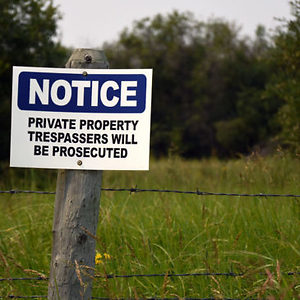Criminal Trespass Versus Criminal Damage to Property: A Major Difference for Related Crimes

Both Criminal Trespass (O.C.G.A. § 16-7-21) and Criminal Damage to Property are crimes related to damage and intrusion upon property. However, the charges carry major differences, resulting in vastly different punishments.
Criminal Trespass
Criminal Trespass (O.C.G.A. § 16-7-21) charges can be brought against someone who intentionally causes less than $500 worth of damages any property of another person without his or her consent or maliciously interferes with the possession or use of property. This can include entering another person’s land, premises, vehicle, railroad car, aircraft, or watercraft without permission or remaining on the property after being asked to leave by the owner. This Code section also makes it clear that permission from a minor child whose parents or guardians own the property is not sufficient.
An individual can also be charged with Criminal Trespass by intentionally defacing, mutilating, or defiling any grave marker, monument, memorial, plaque, or marker that is dedicated, honoring, or recounting any U.S. military service or service member.
Criminal Trespass is a misdemeanor charge.
1st Degree Criminal Damage to Property
Criminal Damage to Property in the 1st degree (O.C.G.A. § 16-7-22) is a more serious charge, as it involves violence or a threat to the wellbeing of another human being. A person can be charged with Criminal Damage to Property in the 1st degree if he or she knowingly and without authority interferes with any property in a manner that endangers human life. This can include forceful or violent interference with the operation of any public system, including communications, transportation, sewerage, drainage, water supplies, or public utility service.
Criminal Damage to Property in the 1st degree is a felony charge that is most often punished by one to ten years in prison.
2nd Degree Criminal Damage to Property
Criminal Damage to Property in the 2nd degree (O.C.G.A. § 16-7-23) charges can be brought against someone who intentionally causes more than $500 worth of damages another person’s property or intentionally causes damage by means of fire or explosives.
Criminal Damage to Property in the 2nd degree is a felony charge that often carries a prison sentence of one to five years.
***
When facing charges of Criminal Trespass or Criminal Damage to Property, it is essential to have expert representation from experienced attorneys.
At Andersen, Tate & Carr, our attorneys are dedicated to reaching the best possible outcome for our clients. Our criminal defense attorneys, Patrick McDonough and Trinity Hundredmark, have combined experience of more than 30 years representing clients facing criminal charges in Georgia. For more information, or to request a case evaluation, contact our law office at 1-770-822-0900.
